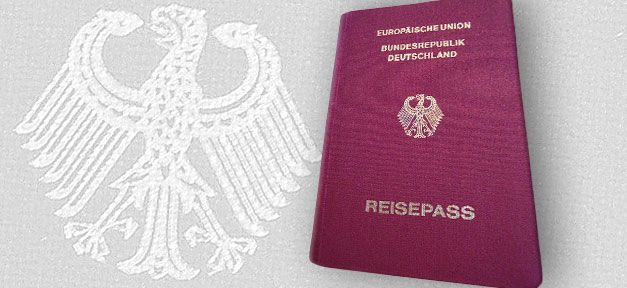Unlike back home where a reference letter is simply a letter that tends to talk about the character of the person and their work ethic in prose form, the German version is quite different.
1. The German reference letter (Arbeitszeugnis) is issued when you leave your job NOT shortly before you need to apply for something. Back home you usually name your referees in your CV, and in case your potential employer would like to know more, they ask for a letter or call the referee. As you might have noticed, the German CV doesn’t have a referee section (check here). Thus your reference letters which are already written ahead of time are attached together with your certificates to your portfolio (“Bewerbungsmappe”).
2. There are different types of Arbeitszeugnisse:
- The Simple Reference Letter (einfaches Arbeitszeugnis) – includes details on how long the person worked there as well as a short list of the employee’s main tasks. (You get this usually after short internships)
- The Detailed Reference Letter (qualifiziertes Zeugnis) – employee data, job description, performance assessment and an overall review on the employee’s character and work ethic.
Every employee is entitled to a detailed reference letter upon leaving their job, and this should be issued shortly after. The detailed reference letter is the one that comes loaded with codes that you need to be able to uncode. A simple review as “good” might not necessarily mean you were a good employee. Although most employers ensure they don’t write anything negative on your reference letter, they tend to use codes instead.
Some good examples include:
Using empty statements that translate differently e.g.
- „Er erzielte nicht unerhebliche Verkaufserfolge“ (he achieved considerable success in sales) what sounds harmless could actually mean you weren’t such a good sales person.
- ,Er erledigte seine Arbeiten mit großer Genauigkeit und Sorgfalt‘, (He did his work with great accuracy and care) could mean the employee was slow
- „sehr zur Verbesserung des Betriebsklimas beigetragen“ (Greatly contributed to improvement of the working atmosphere) could mean the employee is an alcoholic
Omitting details on key qualities required for the position e.g. for a sales person, there’s no mention on their people skills, or a graphics designer without mentioning their creativity or an accountant with no mention on their attention to detail.
The order of the words also matters e.g.
- „der Umgang mit Kollegen und Vorgesetzten war vorbildlich“ (their interaction with colleagues and superiors was exemplary). The fact that the superiors are mentioned after the colleagues goes to show that at least the employee had a better relationship with the colleagues than they did with their superiors.
Other than the words used in the letter, other things to look out for are:
- Who signed the letter? The top manager or just one of the lower ranking colleagues? Maybe even the secretary?
- Did they use a letter head or just normal printing paper? Was a company seal used?
- What there consistency in the text format?
If you get a badly done or negative reference letter, it is possible to actually get a new one from the employer, just don’t wait too long. In most contracts, there’s a clause that stipulates the time period within which to get a reference letter, thus your entitlement might be taken away if you decide to use the courts for example.











